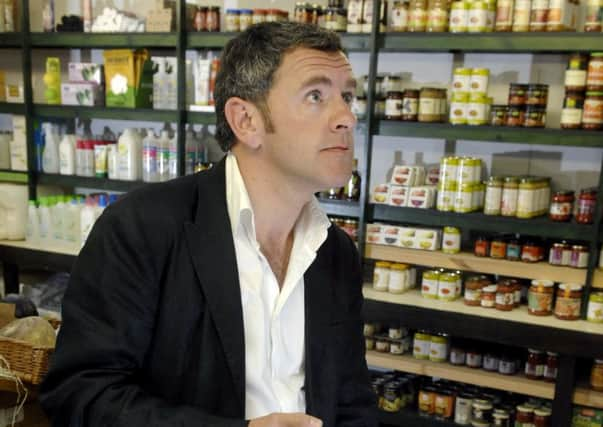Stephen Jardine: Why hospital care comes on a plate


They do an amazing job at the highest level but, as non-foodies sometimes point out, it’s hardly life or death. However, in some kitchens in Scotland, that’s exactly the responsibility facing a different group of chefs.
This week, I chaired the national gathering of the Hospital Caterers Association and had my eyes opened to the amazing job they do.
Advertisement
Hide AdAdvertisement
Hide AdFor a start, the numbers involved are colossal. Every year in Britain, we spend over £1 billion on hospital catering. In Glasgow alone, that equates to more than 43,000 meals every single day.
The budget available varies greatly from area to area, but all have to conform to the highest standards of nutrition and quality. When the customers are some of the weakest and sickest people in society, failure to deliver simply isn’t an option. So whatever the circumstances, hospital caterers have to deliver three meals and five beverages every day of the year.
It’s a responsibility any chef would find daunting. But add in the withering past criticism of the food on offer, and delivering hospital catering can look like an awesome burden.
In recent years, huge progress has been made. As well as ensuring meals meet nutritional standards, much more effort has been going into making hospital food look and taste good.
TV chef James Martin addressed the gathering this week and shared some of his personal experiences from Operation Hospital Food. It involved fundamental changes to hospital catering in one part of the north of England. On a limited budget, he was able to revitalise the menus and introduce innovations like food packs to take home that have helped recovery for the weak and vulnerable.
But if one area still requires attention, it is what the hospital catering sector calls “the last nine yards”. All the effort being put into improving hospital meals will be wasted if it all falls down at the point of delivery. That can be something as simple as nurses being too busy to help feed patients too ill to feed themselves or food being left untouched at the end of the bed because it wasn’t what the person wanted. More effort needs to go into making sure good food is served with care.
With a general election just around the corner, the NHS is a key battleground, and for hospital caterers that brings uncertainty. Whatever the outcome on 7 May, spending and investment needs to be maintained. Good and nutritious hospital food is the best medicine any patient can get. And we have to remember, none of us know when we might be needing it.
FOLLOW US
SCOTSMAN TABLET AND MOBILE APPS